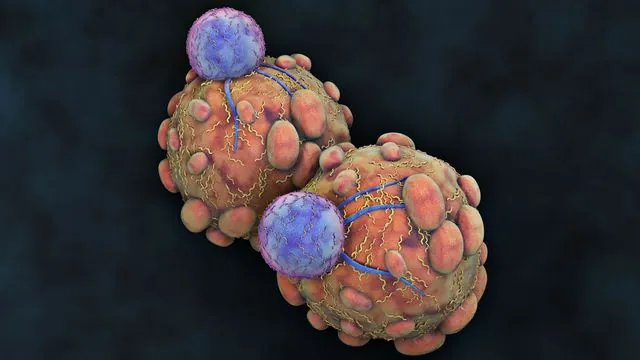
Revolutionary Small-Molecule Drug ACBI3 Offers Hope for KRAS-Mutated Cancers
2024-09-24
A Game Changer for Cancer Patients Worldwide
KRAS is a notorious cancer gene, with mutations found in 17% to 25% of all cancer cases, impacting millions globally. It is pivotal for the unchecked growth of tumor cells, making it a prime target for cancer therapies. Current treatments available primarily focus on one specific KRAS mutation (G12C), leaving over half of the KRAS mutation population without effective treatments. The introduction of ACBI3 could change this landscape dramatically, offering potential solutions for many patients.
Unleashing the Power of PROTACs
The remarkable capabilities of ACBI3 stem from its classification as a PROTAC (PRoteolysis TArgeting Chimeras), a new class of drug candidates that degrade disease-causing proteins rather than merely inhibiting them. In preclinical studies, ACBI3 has proven to effectively eliminate 13 out of the 17 most common KRAS mutants with remarkable potency and selectivity, leading to tumor regression in mouse models—showing greater efficacy than typical KRAS small molecule inhibitors.
Professor Alessio Ciulli, Director of the CeTPD and co-author of the study published in the prestigious journal Science, expressed enthusiasm about the collaboration with Boehringer Ingelheim. He emphasized the importance of innovative partnerships in spearheading advancements in medical treatment.
Dr. Peter Ettmayer, also a co-author and head of Drug Discovery Vienna at Boehringer Ingelheim, noted that by harnessing the expertise of leaders in the field like Professor Ciulli, the potential of innovative therapeutic avenues could be fully explored.
A New Approach to Tumor Reduction
PROTACs operate using a dual-pronged strategy: one end of the molecule binds to the target protein, while the other recruits an E3 ligase, a component of the cell's waste disposal system. This intricate mechanism tags the target protein for destruction, effectively clearing it from the cell.
The research team, led by Johannes Popow, Christiane Kofink, Andreas Gollner at Boehringer Ingelheim, and William Farnaby at the University of Dundee, focused on designing a degrader that could target a wide array of KRAS mutations. Their efforts led to the development of a compound that paired well with the E3 ligase von Hippel-Lindau (VHL), illustrating the concept of “molecular glue” and providing a strong foundation for future exploration.
Detailed structural analysis using X-ray crystallography allowed the researchers to visualize how these components interacted at the atomic level, leading to refined and more active degrader compounds.
Open Science for Enhanced Research
A standout feature of this initiative is Boehringer Ingelheim's commitment to advancing global cancer research by making the KRAS degrader ACBI3 freely available to scientists through their opnMe® portal. This open-access model is expected to catalyze further research and exploration into degrading KRAS, aiming to improve the lives of millions battling cancer.
In summary, the emergence of ACBI3 signifies a promising step forward in the fight against KRAS-related cancers, holding the potential to transform treatment paradigms and enhance outcomes for numerous patients worldwide.



 Brasil (PT)
Brasil (PT)
 Canada (EN)
Canada (EN)
 Chile (ES)
Chile (ES)
 España (ES)
España (ES)
 France (FR)
France (FR)
 Hong Kong (EN)
Hong Kong (EN)
 Italia (IT)
Italia (IT)
 日本 (JA)
日本 (JA)
 Magyarország (HU)
Magyarország (HU)
 Norge (NO)
Norge (NO)
 Polska (PL)
Polska (PL)
 Schweiz (DE)
Schweiz (DE)
 Singapore (EN)
Singapore (EN)
 Sverige (SV)
Sverige (SV)
 Suomi (FI)
Suomi (FI)
 Türkiye (TR)
Türkiye (TR)